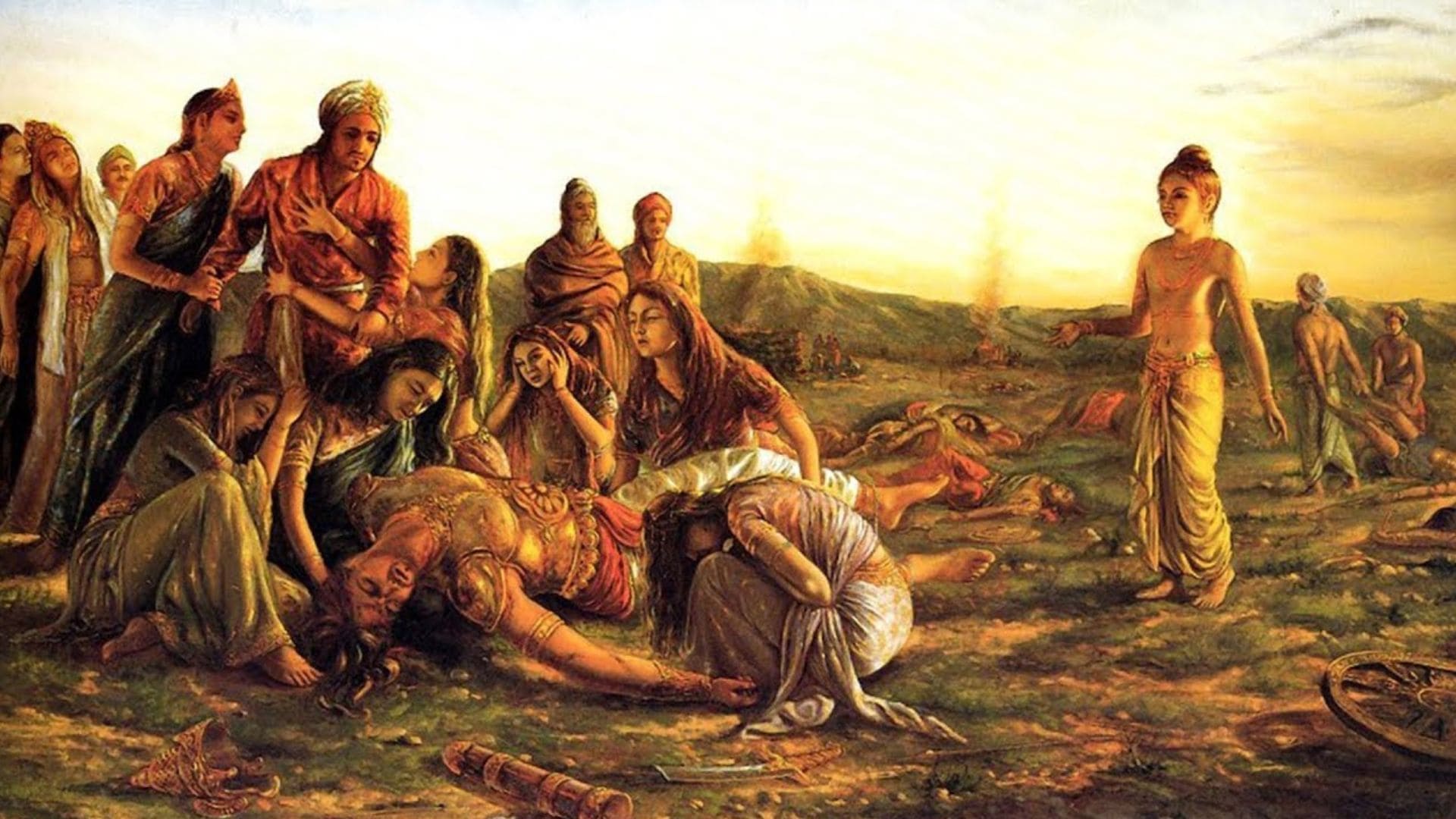
The Aftermath of the Kurukshetra War Yudhishthiras Journey to Kingship and Dharma
the Pandavas were not much happy and satisfied after winning the war
They had lost almost everyone in this war. All their cousin brothers (Kauravas) were dead. Their Grandfather, Guru, Mama (Shalya), Father-in-law (Drupad), many other relatives and so many friends also died in the war. They also lost their so many sons in this war.
The Hastinapur had become a city full of widow ladies and orphan children. The treasury of Hastinapur was almost empty.
Yudhisthir became so sad of all this deaths in the war that he considered himself responsible for the death of all those people and did not wanted to become King and instead wanted to renounce the world and go to forest and become a Sanyasi.
Later on, he was counselled by Lord Krishna, Ved Vyas Ji, his brothers and many others that this is not the right decision. He was told that now he had the responsibility to establish the Dharma by becoming the King and to take care of Hastinapur, its residents and also Dhritrashtra and Gandhari who both were old in age and were in pain of having lost all their sons in the war.
The Yudhisthir became the King and established Dharma in the world. He also conducted the Ashwamedha Yagya and succeeded in uniting all the kingdoms under his leadership and became the ‘Chakravarti Samrat’ of whole India.
Similar Stories
Explore the unparalleled feats of Arjuna, the greatest archer of the Mahabharata, revered for his divine prowess, unmatched victories, and devotion to dharma.Learn about his battles against gods, demons, and mighty warriors, and his significant role in the Kurukshetra War.
Was Karna truly overrated, or has modern storytelling distorted his legacy? This article examines Karna's portrayal in Vyasa's *Mahabharata* versus the exaggerated glorifications by folklore and popular media. We address common misconceptions, such as the myth of unlimited astras, the chariot-pushing incident, and Karna's defeats. Explore a balanced perspective on Karna's strengths and flaws, uncovering the truth behind his legendary status.
Delve into the Hindu worldview of life and death as an eternal cycle governed by *samsara* (reincarnation) and *karma*. Understand the soul's journey beyond the physical body, the spiritual role of grief, and the importance of *dharma*—a moral code that harmonizes life with cosmic order. Discover the profound path toward liberation (*moksha*).
Astrology, Mantras, Events, Stories & More.
